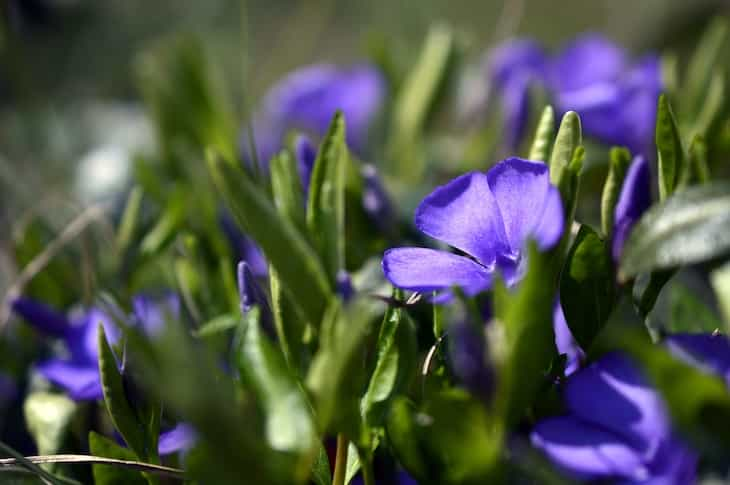If you want to add some subtle and gentle flowers to your garden, then you can try growing periwinkles.
These soft violet flowers can be perfect garden decorations on their own, or as an addition to other garden beds.
Here are some effective tips on how to grow them.

Choose a Sunny Spot
Periwinkles love sunlight. Pick a spot in your garden that receives plenty of sunshine throughout the day.
Prepare the Soil
Make sure the soil is well-draining. You can add some compost or well-rotted manure to make it nutrient-rich.
Periwinkles aren't too picky about soil types.
Get Periwinkle Plants or Seeds
You can either buy periwinkle plants from a nursery or start from seeds.
If using seeds, sow them directly into the soil or start them indoors and transplant later.
Planting
If you have periwinkle plants, dig small holes in the prepared soil, spacing them about 6 to 12 inches apart.
If using seeds, follow the instructions on the packet for the right depth.
Watering
Water the plants regularly, especially during dry spells.
Periwinkles prefer slightly moist soil, but be careful not to overwater, as they don't like waterlogged conditions.
Mulching
Consider adding a layer of mulch around the periwinkle plants.
Mulch helps retain soil moisture, suppress weeds, and keeps the soil cool.
Pruning
Periwinkles can become a bit bushy. Prune them occasionally to encourage a more compact growth.
You can pinch off the tips to promote bushiness.
Watch for Pests
Keep an eye out for common garden pests like aphids or snails.
If you spot any, take appropriate measures to control them, like using natural repellents or insecticidal soap.
Enjoy the Blooms
Periwinkles produce beautiful, colorful flowers. Enjoy the vibrant blooms in your garden throughout the growing season.
Winter Care
In colder climates, periwinkles might die back in winter.
Don't worry; they often bounce back in spring.
You can add a layer of mulch around the plants to protect them from extreme cold.
Previously, we talked about trees after a lightning stroke.











